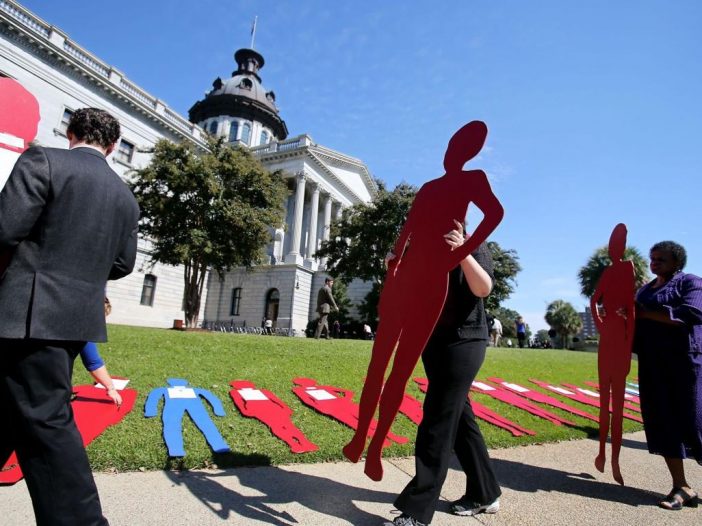
Editorial written by The Post and Courier 10/5/2021
Sometimes the names get lost among the statistics, even in tragedies such as deaths due to domestic violence. But we should not forget them.
Pamela Coleman, 58. Olivia Goff, 35. Christopher Brown, 32. Jennifer Grant, 36. Audrey Heyward, 55.
These five Charleston County residents were among the 24 women and 15 men from across South Carolina who died as a result of domestic violence in the past year.
Attorney General Alan Wilson read their names aloud Tuesday as part of the 24th annual Silent Witness ceremony on the steps of the Statehouse. Family members carried life-size silhouettes for each of the lives lost as a bell was rung for each victim; a 40th silhouette represented the unknown victims.
“This is a sad and solemn occasion to commemorate the lives that were lost in the past year to domestic violence,” Wilson said. “We must keep in mind that domestic violence affects people from all walks of life, and we must work hard to break the cycle of abuse by understanding how violence impacts our community individually and collectively.”
After a one-year improvement, South Carolina’s shameful reputation for violence against women reverted to form. The state ranks No. 6 nationally in the number of women murdered by men, continuing our legacy of being among the most dangerous states for women.
In an op-ed column last week, Sara Barber of the South Carolina Coalition Against Domestic Violence and Sexual Assault highlighted more heartbreaking statistics: One in 4 women and 1 in 7 men have been victims of severe physical violence by an intimate partner in their lifetime.
That should pierce the notion that domestic violence is a crime that only happens to other people. It happens to people we know or encounter on a daily basis. And it cuts across economic, racial and geographic lines.
“Your friend, neighbor or family member could be wondering at this very moment how and when they will next be assaulted, how they will protect their children, when they should leave, whether they will be killed by the person they love, whether anyone will believe them if they ask for help,” Ms. Barber wrote.
“Your relief is a lie; the truth is that we all know someone, and that should anchor our determination and inspire us to action.”
That action should include removing the stigma surrounding domestic violence, prioritizing education and prevention, and acknowledging the flaws and gaps in the system, she said. Combatting domestic violence is a slow, frustrating, uneven process, but it’s not an impossible task. And we don’t have a choice. Ms. Barber reminded us that we must choose hope over despair. That will give us the strength to keep moving forward and ensure that there are fewer and fewer names to remember each year.


